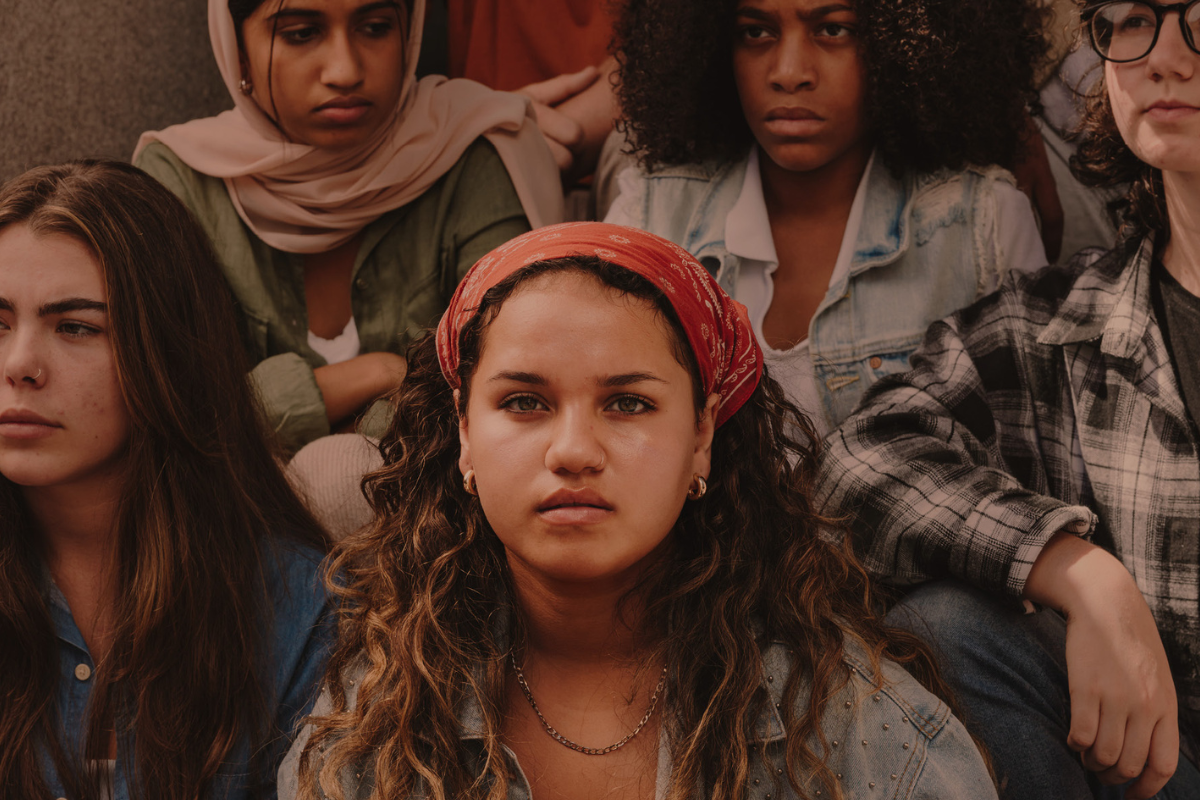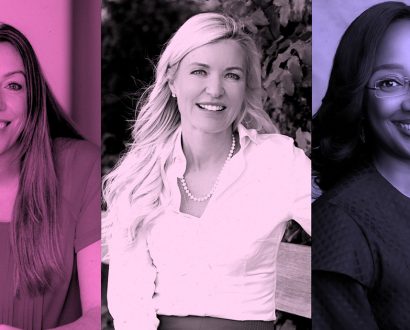Many leaders argue that decisive action in the face of global crisis could be slowed down by too much public participation. At Ashoka, we make the case for the contrary, showing how in real life, whether in New York City schools, elderly care or inclusion of young people, more true participation leads to more resilience, faster responses and more social cohesion for everyone. And cities should be at the forefront of this work.
When, on 15 March 2020, 1,800 New York City schools went into lockdown due to the COVID-19 pandemic, 1.1 million students were expected to stay at home. Within days, the city’s Department of Education procured 321,000 iPads for children without the means for digital learning at home. Then, within a very short time, parents and teachers at all schools agreed to trust each other about who was going to be present at school and when.
There was going to be no fixed formula, no mandatory attendance for teachers or students. And the daily supply of free school meals for all children was continued overnight, so that even the 120,000 students classified as homeless, and later anyone, would be able to pick up free meals at any school near their home or shelter.
One for all
All of this happened without a general blueprint; there were no command or emergency plans. Instead, everyone involved – whether teacher, parent, student, administrative manager – intuitively took on a leadership role. Decisions were coordinated, always aimed at the wellbeing of the teachers, but above all of the most vulnerable students. Children would not be left without care, not be digitally excluded and not disadvantaged in their educational path.
Whenever I imagine cities and communities in which everyone feels invited and able to contribute, I recall these pandemic months in New York City schools. What happened there was so different from what I had heard from other cities around the world. Not only was it nice that parents, teachers and administrators trusted each other, but it was highly effective.
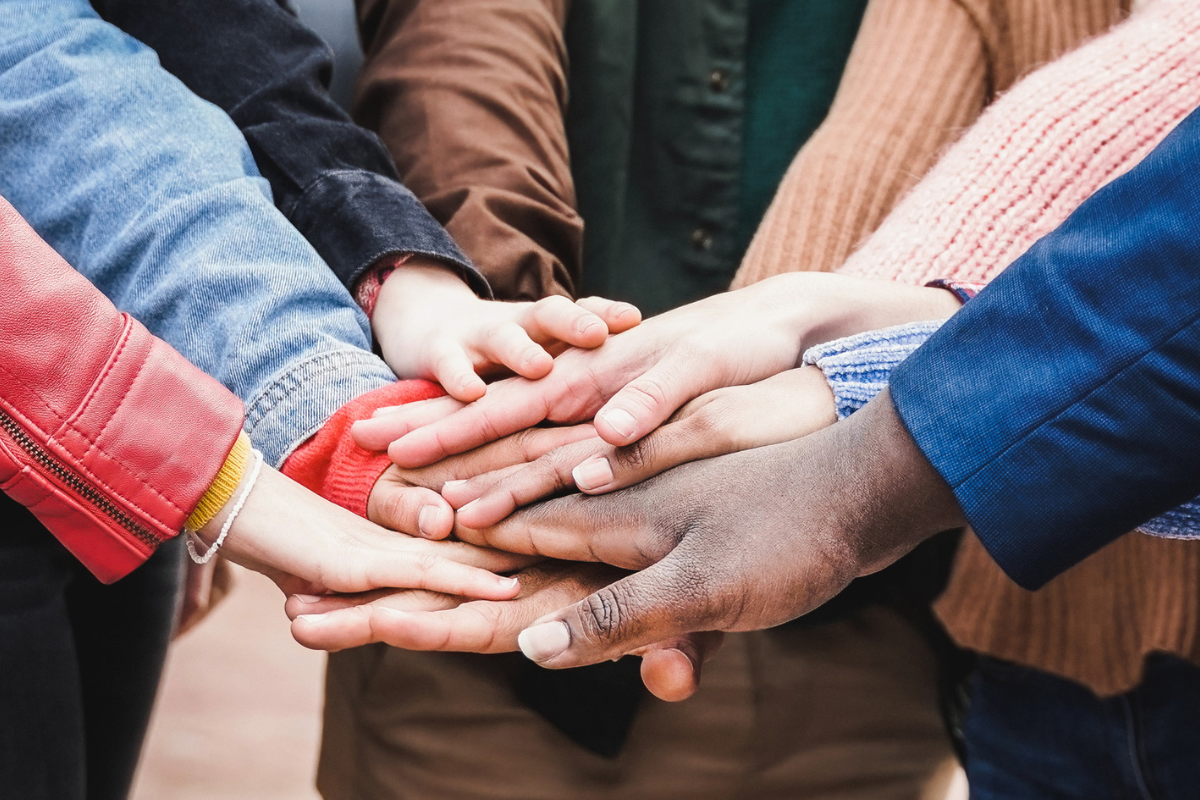
No-one had prepared New Yorkers for a pandemic. But a collective understanding of the needs of underserved children had developed.
No-one had prepared New Yorkers for a pandemic. But a collective understanding of the needs of underserved children had developed over decades in the school system. Schools have long tried to ensure that not only privileged parents who care about academic excellence are involved in school life, but that school leaders also measure their success by whether they manage to help pave the way for all parents to truly participate, especially those who had the least time and perhaps also the least belief in their ability to contribute.
New York City’s school system is anything but perfect. But over time, a shared moral compass emerged that produced new priorities: When the pandemic hit, many of those involved were intuitively aware of the circumstances of marginalized children and families. And they were able to act responsibly. For me, what I experienced in New York is the result of true participation.
Social heroes
For decades, Ashoka has successfully promoted social innovations around the world. Together, the 4,000 organizations we support have improved the living conditions of more than 650 million people. A common thread of the social entrepreneurs we support is often precisely the kind of true participation that helped New York City through the crisis.
A similar effect can be found in many other places and systems. For example, when people with disabilities enter the open labor market in new roles. They may work as ‘social heroes’ in organizations like Sozialhelden, or as educational specialists in universities through the work of the Institute for Inclusive Education. In both examples, people formerly excluded from active civic participation now self-organize their invaluable contributions to society and education, leading to better outcomes for all.
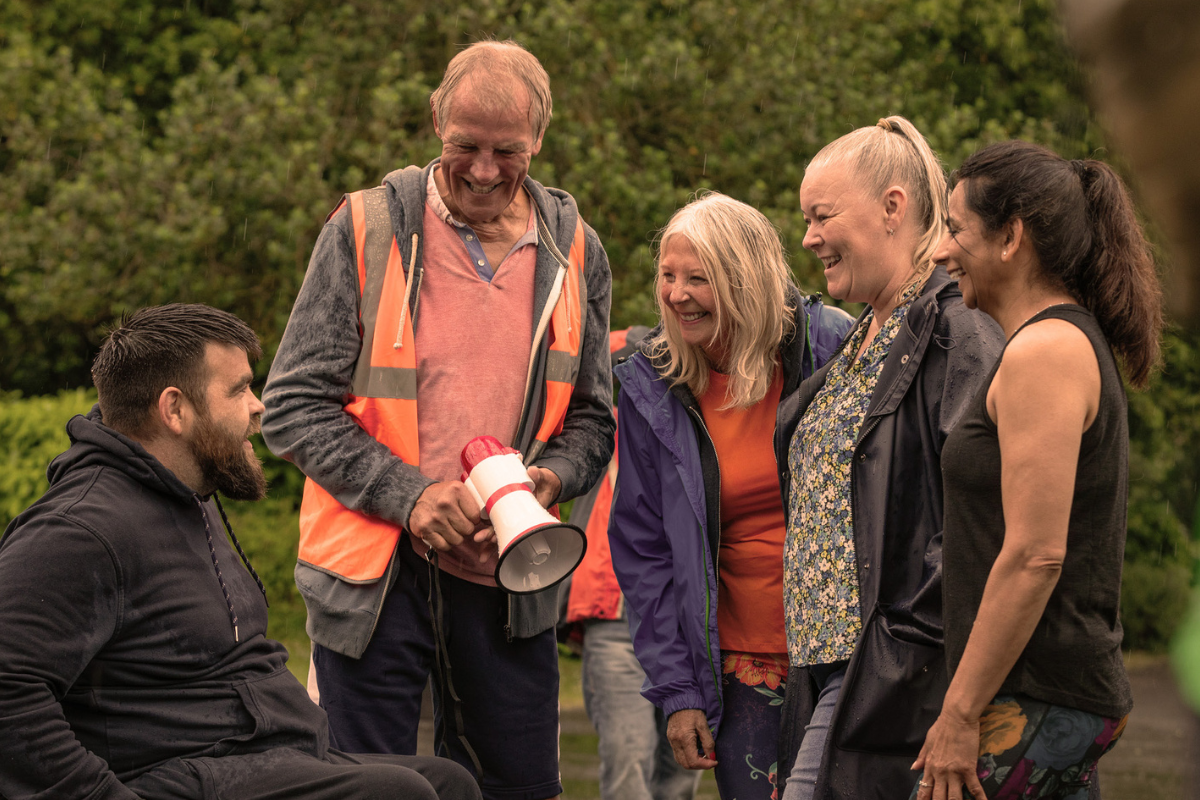
True participation isn’t just a right to vote but also to have a pathway to fully contribute to shaping our communities.
Organizing participation in this way may be uncomfortable and laborious. Some believe that the inclusion of vulnerable or marginalized groups will only unnecessarily slow us down or make the world more complicated. But real examples challenge this misbelief. With Buurtzorg, over 15,000 nursing staff in the Netherlands deliver first-class care services as small, locally organized teams without any controlling management.
Or, on a smaller scale, take the case of Isabell Veronese. Due to her speaking impairment, she was told by her teacher in her special needs school that she believed she would be unable to learn English. Her life journey went on to prove how much higher the expectations could have been.
Through her qualification at the Institute for Inclusive Education she found her way into regular employment. She now works as a lecturer at the Christian Albrechts University in Kiel, Germany, leading classes and workshops with students so that they can better understand the needs and capabilities of people with disabilities. True participation isn’t just a right to vote but also to have a pathway to fully contribute to shaping our communities.
Nurturing tomorrow’s changemakers
Cities play a huge role in enabling everyone to contribute. Local government, whether through direct or indirect services, is closest to our lives, after all. An example is the City of Hamburg, where Ashoka, together with MTS Social Design, has launched the Participation Collective (in German: Team Teilhabe), where young changemakers get the tailwind and support of dozens of creative leaders from government, business, foundations and the media to implement their ideas.
Ten young people aged 17–24 were selected for their commitment and ideas to make their city more inclusive and sustainable. Now, they participate in a journey of discovery to bring their ideas to life. One of them is Adelina Vynnyk-Krupchan, who arrived in Hamburg from Ukraine two years ago. Her own experience of making a home in a new city, feeling lonely at first, but then discovering opportunities to start a new chapter in her life, drove her to pave the way for other young people in a similar situation.
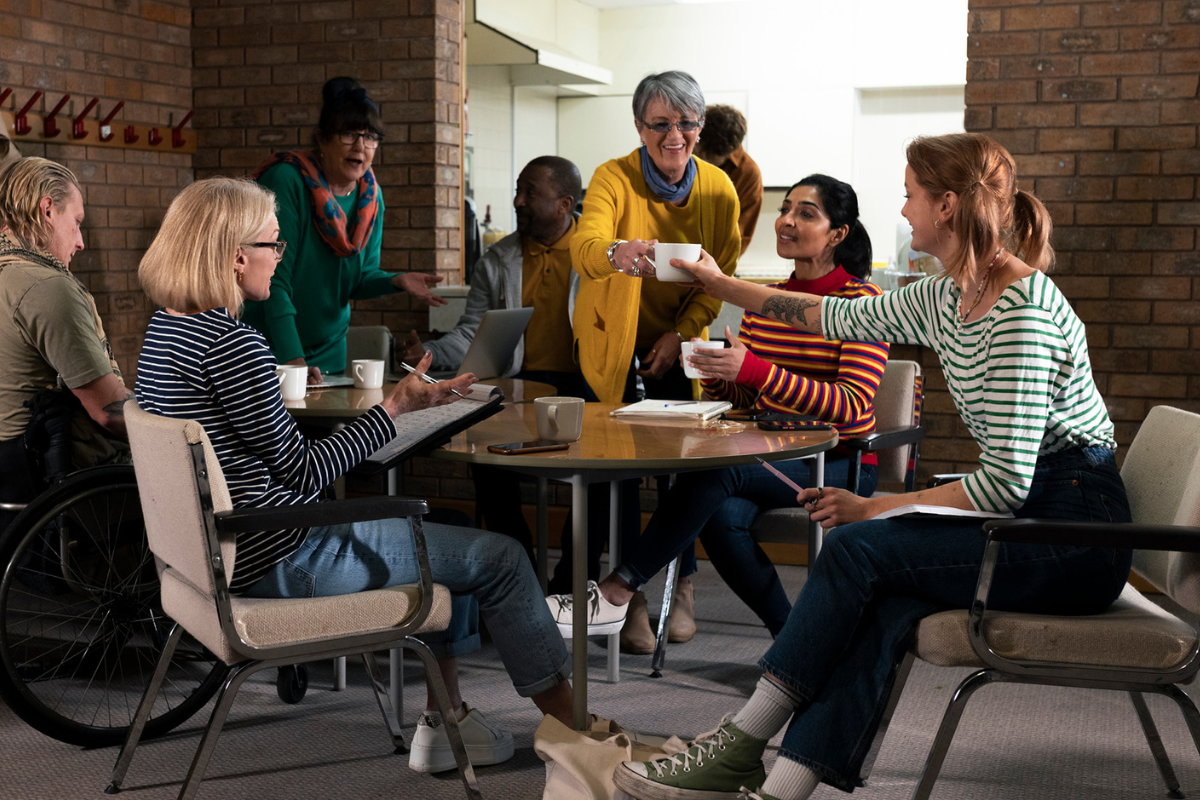
The adult supporters discover that they can have a much more transformative impact when they create a pathway for young people to contribute.
In the Participation Collective, Adelina and her peers are in charge of their journey and can tap into a highly motivated support network that acts as a sparring partner, provides mentoring, opens doors and creates opportunities.
Next to all the wonderful innovations coming out of this team, there is another big change taking place in this community: Everyone involved experiences real growth in their self-efficacy, their belief that they can contribute to change. The 10 young participants, so commonly excluded from real decisions, learn that they are taken seriously and that doors open for their ideas. And the adult supporters discover that they can have a much more transformative impact when they create a pathway for young people to contribute.

